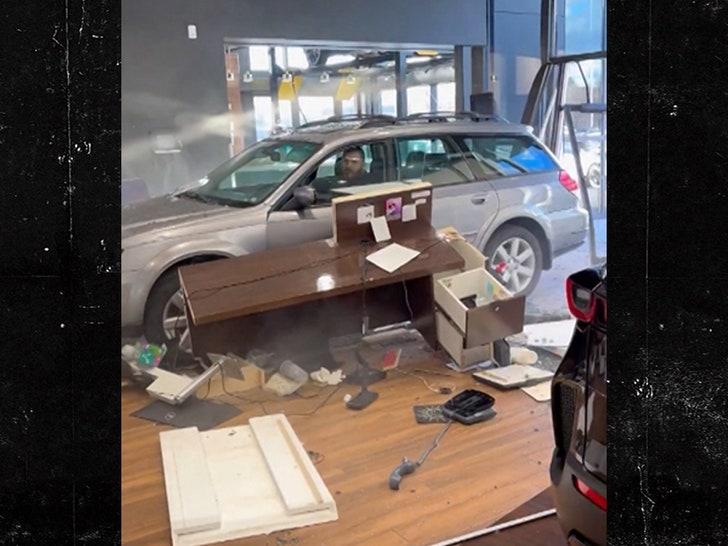In the high-stakes world of used car transactions, frustration can quickly escalate from a simmer to a boil. When one disgruntled buyer’s complaint was dismissed by a dealership, he chose a dramatic—and destructive—form of protest that turned heads and raised eyebrows. His tale serves as a cautionary narrative about consumer rights, automotive negotiations, and the importance of due diligence when navigating the complex landscape of pre-owned vehicle purchases. As we unpack this extraordinary incident, we’ll explore practical strategies to help buyers steer clear of potential automotive nightmares and protect themselves from ending up with a notorious “lemon” that could drive them to the brink of vehicular vengeance. A frustrated customer’s extreme reaction at a local car dealership highlights the potential pitfalls of used car purchasing. In a bizarre incident that shocked local residents, a buyer reportedly drove his recently acquired vehicle directly into the dealership’s showroom after being denied a return.
Used car purchases come with inherent risks, but savvy consumers can protect themselves through strategic research and careful examination. Start by obtaining a comprehensive vehicle history report, which reveals critical details about past accidents, ownership, and potential mechanical issues.
Professional pre-purchase inspections are crucial. Certified mechanics can uncover hidden problems invisible to untrained eyes. These detailed evaluations typically cost between $100-$250 but can save thousands in potential repair expenses.
When evaluating a used vehicle, conduct a thorough physical examination. Check for signs of previous damage, uneven panel gaps, rust spots, and paint inconsistencies. Test drive the car under various conditions, listening for unusual sounds and assessing its overall performance.
Digital resources provide invaluable information for potential buyers. Websites like Carfax, AutoCheck, and consumer review platforms offer insights into specific vehicle models’ reliability and common mechanical issues. Consumer Reports and Kelly Blue Book provide comprehensive reliability ratings and fair market value assessments.
Negotiation strategies can also protect buyers. Always request maintenance records and be prepared to walk away if something seems suspicious. Consider purchasing extended warranties for additional protection, especially with higher-mileage vehicles.
Financing options require careful consideration. Many dealerships offer in-house financing, but comparing rates from multiple lenders can secure better terms. Credit unions and online financial institutions often provide more competitive rates compared to traditional dealership financing.
Legal protections vary by state, so understanding local lemon laws is essential. Some jurisdictions offer specific protections for used vehicle purchases, providing recourse for significant mechanical failures discovered shortly after purchase.
Technology has transformed used car buying. Mobile inspection apps and online marketplaces offer additional layers of transparency. Some platforms provide detailed vehicle histories, professional inspection reports, and transparent pricing information.
Modern consumers have unprecedented access to information. Thorough research, professional inspections, and strategic negotiation can significantly reduce the risk of purchasing a problematic vehicle. By approaching used car buying methodically and skeptically, buyers can minimize potential disappointments and avoid costly mistakes.
Remember, patience and diligence are your greatest allies in securing a reliable used vehicle that meets your transportation needs and budget constraints.






